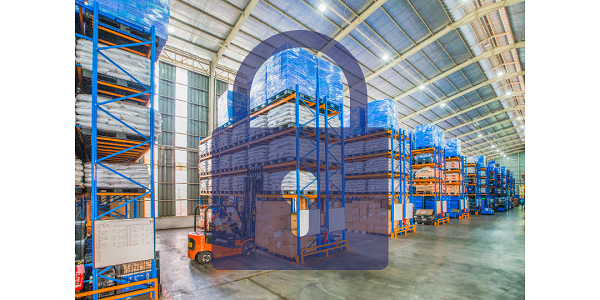Unveiling the True Value of Manufacturing Security: How a Holistic Approach Saves More Than Just Money

As manufacturers navigate the ever-changing landscape of the digital age, ensuring security within their operations becomes increasingly crucial. The advent of new technologies, automation, and complex supply chains has introduced a host of risks that can disrupt business operations and compromise sensitive information.
To thrive in this challenging environment, manufacturers must adopt a holistic approach to security management. By integrating robust risk management practices, comprehensive governance structures, and crisis preparedness, manufacturers can safeguard their operations, protect their reputation, and maintain a competitive edge.
Streamlining Financial Decisions for Enhanced Security
Just as personal finance requires a holistic approach, so too does security management for manufacturers. Traditionally, security measures have been implemented in a piecemeal fashion, with individual systems and protocols addressing specific areas of concern. However, this fragmented approach is no longer sufficient to combat the evolving threats faced by manufacturers.
To streamline security decisions and enhance overall protection, manufacturers should adopt a centralised system that provides a comprehensive view of their security landscape. By integrating all security systems and protocols into a single platform, manufacturers can gain real-time insights into their security posture, identify vulnerabilities, and make informed decisions to mitigate risks. This holistic approach allows manufacturers to optimise their security investments, allocate resources effectively, and respond swiftly to emerging threats.
Developing Growth Strategies Based on Risk Assessment
Understanding the current security landscape and identifying potential risks is essential for manufacturers to develop effective growth strategies. A comprehensive risk assessment provides manufacturers with insights into their vulnerabilities, enabling them to prioritise security measures and allocate resources accordingly.
By taking a holistic approach to security management, manufacturers can proactively address potential risks and develop strategies to mitigate them. This includes implementing robust physical security measures, such as access controls and surveillance systems, as well as securing digital assets through encryption, firewalls, and intrusion detection systems. Additionally, manufacturers should prioritise employee training and awareness programs to foster a culture of security consciousness throughout the organisation.
Matching Security Goals to Business Priorities
In today’s rapidly evolving business landscape, manufacturers must align their security goals with their overall business priorities. This requires a deep understanding of the industry-specific risks and challenges faced by manufacturers and the ability to adapt security measures accordingly.
For example, manufacturers operating in highly regulated industries, such as healthcare or aerospace, must prioritise compliance with industry standards and regulations. This may involve implementing stringent data protection measures, ensuring secure supply chain processes, and maintaining auditable records of security practices. On the other hand, manufacturers in sectors driven by intellectual property, such as technology or pharmaceuticals, should focus on protecting their valuable trade secrets and proprietary information.
Prioritising Security and Risk Management in Tandem
Managing security risks effectively requires a balanced approach that considers both security priorities and risk management strategies. Manufacturers must not only prioritise security measures but also develop robust risk management frameworks to identify, assess, and mitigate potential risks.
A proactive risk management approach involves implementing comprehensive risk assessment processes, regularly reviewing and updating security protocols, and conducting ongoing monitoring and evaluation of security measures. This holistic approach allows manufacturers to identify potential risks early on, respond swiftly to emerging threats, and continuously improve their security posture.
Enhancing Security Through Operational Controls
Operational controls play a critical role in enhancing security within manufacturing environments. By implementing effective operational controls, manufacturers can streamline processes, reduce vulnerabilities, and ensure the integrity of their operations.
One essential operational control is supply chain management. Manufacturers should establish strong relationships with trusted suppliers, conduct due diligence on their security practices, and implement robust monitoring mechanisms to detect any potential risks within the supply chain. Additionally, manufacturers should develop stringent quality control processes to ensure the integrity and safety of their products, protecting both their customers and their reputation.
Embracing Ethical and Societal Standards
In the age of sustainability and corporate social responsibility, manufacturers must consider ethical and societal standards as part of their overall security management practices. By adhering to ethical controls and ensuring responsible business conduct, manufacturers can enhance their reputation, attract socially conscious customers, and build stronger relationships with stakeholders.
Manufacturers should prioritise employee well-being and safety, implement fair labour practices, and demonstrate commitment to environmental sustainability. By embedding ethical and societal standards into their security management practices, manufacturers can create a positive impact on society while protecting their business interests.
Crisis Preparedness and Response
Despite robust security measures, manufacturers must be prepared to handle crises when they occur. Crisis preparedness involves establishing a well-defined crisis response plan, training key personnel to handle crisis situations, and conducting regular simulations to test the effectiveness of the plan.
Manufacturers should identify potential crisis scenarios, develop response strategies, and establish clear communication channels to ensure timely and effective crisis management. By being proactive in their crisis preparedness efforts, manufacturers can minimise the impact of crises, protect their operations, and maintain business continuity.
Conclusion: Thriving in the Era of Manufacturing Security
In the face of evolving security threats and complex business environments, manufacturers must adopt a holistic approach to security management. By integrating robust risk assessment practices, comprehensive governance structures, and crisis preparedness, manufacturers can protect their operations, enhance their reputation, and maintain a competitive edge.
To thrive in this era of manufacturing security, UK manufacturers are invited to join our upcoming webinar: “Thriving in Crisis - Cost Efficient Security Practices for Manufacturers.” This webinar will provide valuable insights and practical strategies to help manufacturers navigate the challenges of security management in the manufacturing industry. Join us to learn how to optimise your security practices and safeguard your business for the future.
Remember, a holistic approach to security management is the key to unlocking the true value of security for manufacturers. Embrace the challenge, protect your operations, and thrive in the era of manufacturing security.





